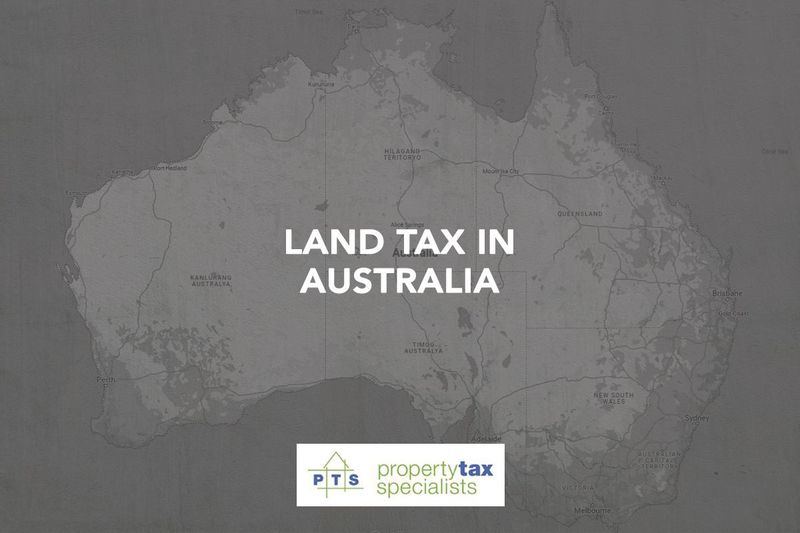Understanding Who Pays Land Tax in Australia
Navigating the intricacies of who is liable for land tax in Australia can feel like solving a challenging puzzle.
There are approximately 10.9 million properties in Australia, and many of their owners regularly scratch their heads over this very issue. If you’ve found yourself amid this conundrum, pondering whether you’re accountable for this yearly charge on your property, rest assured you are far from alone.
In fact, the confusion around land tax obligations isn’t merely a personal predicament; it’s a nationwide question that resonates with many.
Why?
Because the rules aren’t uniformly applied. They fluctuate based on a myriad of factors, including your state or territory, the nature of ownership, and even the specific use of the land itself. That’s a lot to consider for anyone, let alone those new to the world of property ownership.
“Do I owe land tax? If yes, how much? Are there any exemptions I could qualify for?”
In this blog, we’ll answer all these questions so that you have a more comprehensive understanding of your potential obligations.
Here’s what you need to know.

Land Tax Basics in Australia
Land tax in Australia is an annual levy payable by property owners to state and territory governments, with the exception of the Northern Territory. This tax primarily targets investment properties and is triggered when their total taxable value exceeds a specified land tax threshold.
In other words, if your property falls below the threshold, you won’t have any land tax liability. And if land tax applies, you will only have to pay on the value above the vacant land threshold.
Some states have also introduced additional surcharges for foreign persons.
Each state or territory has set its own thresholds and tax rates.
| State | Threshold | Rate |
| NSW | Basic: $969,000
Premium: |
1.6% + $100
2% + $100 |
| VIC | $300,000 | Progressive rates starting at 0.2% |
| QLD | $599,000 | Progressive rates starting $500 plus 1 cent for each $1 more than $600,000 |
| SA | $534,000 | Progressive rates starting at $0.50 for every $100 or part of $100 above $534,000 |
| WA | $300,000 | Progressive rates starting at a flat rate of $300. |
| TAS | $25,000 | Progressive rates starting at 0.55% + $50 |
| ACT | $0 | Progressive rates starting at 0.54% plus $1,462 |
| NT | N/A | No land tax |
Please note that these rates and thresholds are subject to change and should be used for general comparison purposes only. For the most up-to-date information, visit the appropriate state government website or consult a tax professional.
Example:
Let’s say you’re the owner of an investment property in Queensland. The total taxable value of your property is $680,000. In Queensland, the land tax rates are tiered, meaning they are based on the total taxable value of your property portfolio.
According to Queensland’s land tax rates for the financial year in question, your property falls within the tax band of $600,000 to $999,999. The tax calculation for this band is formulated as $500 plus one cent for each dollar over $600,000.
So, how do we calculate your land tax?
First, we need to calculate the excess value of your property over the minimum threshold of the tax band, which is $600,000. Your property is valued at $680,000, so the excess is $80,000 ($680,000 minus $600,000).
Then, we apply the tax rate of one cent for each dollar over $600,000. This means you would pay one cent times the $80,000 excess, which equals $800.
Finally, you add this amount to the base tax of $500 for this band.
The calculation would look like this:
$500 (base tax for this band) + $800 (one cent per dollar over $600,000) = $1,300
So, your total land tax payable for your Queensland property, valued at $680,000, would be $1,300 for that year.
Land Tax Exemptions and Concessions
There may be certain exemptions and concessions available to you based on your individual circumstances or the use of your land. Common exemptions include the following:
- Principal place of residence: In most states, you will not be required to pay land tax for your main residence. This exemption typically extends to a single residential property.
- Primary production land: Land that is used for certain agricultural, horticultural, or pastoral purposes may be exempt for land tax purposes.
- Charitable purposes: Land owned and used by charitable organisations for specific activities or the benefit of the community can be eligible for exemptions.
Additionally, some states offer concessions for specific types of landowners:
- Seniors: In certain states, seniors may be eligible for land tax concessions or reductions based on their age or pensioner status.
- First home buyers: First-time homebuyers may be able to access concessions on their land tax liabilities.
Remember to check the specific exemptions and concessions that apply to your state and your circumstances. This information can be found on the relevant state government website, or you may wish to consult a tax professional for tailored advice.
Who Pays Land Tax?
If you don’t fall within one of the categories that are exempt, you’ll likely have to pay land tax.
Land Owners
As mentioned previously, if you own land within Australia that is not your principal dwelling and its total value meets or exceeds the land tax threshold, you will need to fulfil the land tax obligation according to state or territory requirements (unless you own land in the Northern Territory).
Property Developers
As a property developer in Australia, you may also be required to pay land tax on the properties under your development. Like landowners, the tax you pay is based on the value of the land, its use, and its overall value at the end of a set period.
Trusts With an Investment Property
Trusts that own land in Australia are generally subject to land tax as well. The land rules for trust-owned properties can vary depending on the state or territory, so you must familiarise yourself with the specific regulations in your area and consult with a tax professional, lawyer or solicitor to ensure you are meeting all necessary requirements.
How to Dispute Land Tax Assessments
If you believe your land tax assessment in Australia is incorrect, you have the right to dispute it. The process may vary slightly across different states, but most follow similar steps.
Appealing Your Land Tax Assessment
First, review your land tax assessment carefully and ensure all information is accurate, such as the property’s address and land value.
If any errors are found, contact the local State Revenue Office as soon as possible. They may be able to correct the issue without initiating a formal dispute process. If the errors persist, you can proceed with lodging an objection.
- Lodge a formal objection: You can lodge an objection to an assessment or reassessment if you feel an incorrect decision has been made. Make sure to lodge the objection within the specified timeframe
- Gather supporting documents: Provide evidence to support your objection, such as an independent valuation report or proof of any exemptions or concessions you believe you are entitled to. Keep copies and records of all relevant correspondence and supporting documents throughout the dispute process.
- Submit your objection: Follow the guidelines provided by your local State Revenue Office for submitting your objection. This typically involves completing the required forms and providing them along with your supporting evidence.
- Wait for a decision: The State Revenue Office will review your objection and make a decision. It may take several weeks, or even months, for a decision to be made. In the meantime, you should consider paying the original land tax amount to avoid any interest or penalty charges. If your objection is successful, you will be refunded any overpaid tax. If your objection is unsuccessful, you may have the option to appeal.
Keep in mind that the dispute process may vary depending on your location within Australia, so consult your local State Revenue Office for the most accurate and up-to-date information on the land tax dispute process in your area.
Key Takeaways
- Land tax in Australia is primarily levied on investment properties exceeding a certain land value, with varying thresholds and rates set by each state or territory.
- There are potential exemptions and concessions, including for principal place of residence, primary production land, and charitable purposes, along with special provisions for seniors, first home buyers, and joint property owners.
- Landowners, property developers, and trusts are generally liable for land tax unless they meet specific exemption criteria.
- Landowners can lodge land tax disputes if they believe an incorrect assessment has been made, but the process can vary by state.
Ultimately, staying informed about your land tax obligations could be vital to your financial planning.
If you need assistance or have any doubts, it’s recommended to consult a professional tax advisor in your state or territory who can guide you through the process and help ensure you stay compliant with the land tax regulations in Australia.
Alternatively, you can contact Property Tax Specialists today.
Disclaimer
Please note that every effort has been made to ensure that the information provided in this guide is accurate. You should note, however, that the information is intended as a guide only, providing an overview of general information available to property buyers and investors. This guide is not intended to be an exhaustive source of information and should not be seen to constitute legal, tax or investment advice. You should, where necessary, seek your own advice for any legal, tax or investment issues raised in your affairs.




